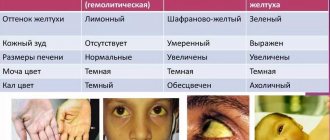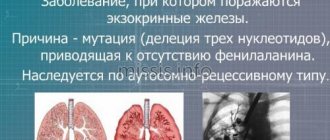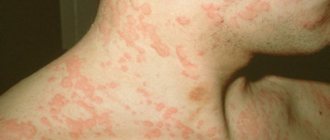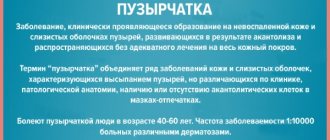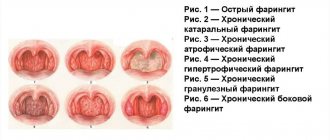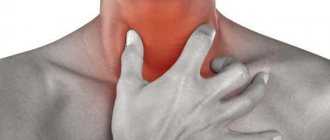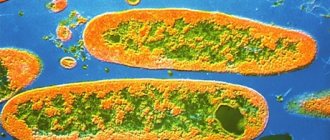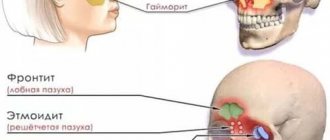Overfatigue is a condition that appears as a consequence of a long period of vigorous activity against the background of lack of rest. This condition depletes the body. It damages human health. Overwork is especially harmful to children's bodies. The disorder in question is manifested by irritability, decreased activity, decreased concentration, and drowsiness. Most individuals do not consider physical or nervous fatigue a serious problem, believing that just enough sleep will go away on its own. In reality, it is impossible to get rid of overwork with the help of sleep; on the contrary, a person constantly wants to doze off, but sleep itself does not restore strength.
Fatigue
Overwork is preceded by fatigue, the symptoms of which are a signal for a person. Fatigue is a shift in the psychophysiological state of the body and leads to a temporary decrease in labor efficiency. Fatigue from light loads, decreased performance, mood swings, longer time for recovery and rest indicate fatigue. It's time to stop doing the work, reduce the intensity, take a break.
Physical fatigue
Develops gradually. At first, mild fatigue and mild pain in the muscles occur. The symptoms go unnoticed, the person continues physical labor or sports, does not reduce the load, which leads to the height of physical fatigue.
Symptoms of physical fatigue:
- constant feeling of fatigue, after sleep, rest, massage;
- increasing muscle pain: at rest, with tension;
- restless sleep: waking up for no reason, difficulty falling asleep;
- disturbance of the emotional background: apathy, lethargy or irritability;
- discomfort, pain in the area of the heart;
- tachycardia;
- decreased appetite;
- white coating on the tongue;
- trembling of protruding tongue;
- weight loss;
- in women - menstrual irregularities.
Symptoms of overwork appear at work. It is impossible to fulfill one’s professional duties fully and efficiently.
See Stress, what it is, its symptoms. 20 ways to deal with stress
Relevance of the problem
According to some reports, about two tens of millions of people suffer from chronic fatigue syndrome in the world. At the same time, scientists note that approximately the same number are simply not diagnosed with it.
People first started talking about chronic fatigue syndrome in 1988, and it was from that time that it began to be regarded as a disease, which is also fraught with complications.
Article on the topic
I just got up and was tired. How to deal with loss of strength
“Given the modern pace of life, the problem of overwork is extremely relevant. Irregular working hours, typical for many, require full dedication and lack of free time not only on weekdays, but also on weekends and holidays,” says Evgenia Parshina, head of the department of allergology and immunopathology of the Central Clinical Hospital of the Russian Academy of Sciences, allergist-immunologist, assistant of the department of immunology of the Russian National Research Medical University. . N. I. Pirogova .
The following factors also contribute to the development of overwork:
- recent infectious diseases, including a new coronavirus infection;
- lack of sleep and poor quality of sleep;
- unbalanced nutrition and lack of a structured diet;
- lack of physical activity with daily mental workload and multitasking.
In addition, daily stress at work and at home aggravates the situation, notes Evgenia Parshina.
Not just tiredness. How to recognize and overcome emotional burnout Read more
Treatment
Available means and methods that speed up recovery from fatigue.
Bath
An ancient Russian way to eliminate fatigue, recover from hard physical labor, increase performance, and strengthen the immune system. Frequency – 1-2 times a week, after the session – massage. You should not visit the bathhouse immediately after exercise, if you are feeling unwell, have acute illnesses, or have a number of other contraindications.
Baths
Water helps to “wash away” fatigue and the heavy burden of the day.
- oxygen bath . Indicated for physical fatigue, after injuries, and for diseases of the musculoskeletal system. Procedure time - 7 minutes, per course - 15 procedures, daily;
- vibrating bath . Activates protective and restorative mechanisms, blood circulation, stabilizes metabolism, eliminates muscle fatigue. Procedure time – 3-5 minutes, per course – 15 procedures, daily;
- pearl bath (with air bubbles passing under high pressure, water temperature 37 C). Promotes relaxation and eliminates nervous tension. Procedure time – 10 minutes, per course – 10-15 procedures;
- pine bath . Has a calming effect and eliminates physical fatigue. Procedure time – 10 minutes, 2 times a week, can be done regularly;
Shower
If you don’t have time to take medicinal baths, a regular shower will help:
- a hot shower with water temperature + 45 C has a tonic effect;
- a warm rain shower soothes, refreshes, and eliminates muscle pain;
- cascade shower increases muscle tone;
- A contrast shower supports the body's performance and speeds up recovery.
Massage
A universal procedure that has a positive effect on the central and peripheral nervous system, heart, blood vessels, digestion, and metabolism. Duration of massage: 10 minutes for each leg, 10 minutes for the back and neck, 10 minutes for the upper limbs, 10 minutes for the abdominal area and chest.
What to do if there is no time for all these procedures?
- Eliminate excessive stress, do not give up your usual physical activities completely. Change activities, take a short vacation.
- Walk outdoors every day.
- Eliminate nervous tension as much as possible (don’t live with other people’s problems, don’t get nervous over trifles, etc.) see how to stop getting nervous over trifles and strengthen the nervous system;
- Review your diet: saturate your menu with fruits, vegetables, herbs, and lean meats.
Folk remedies
For therapeutic purposes, infusions and teas from the leaves and fruits of medicinal plants are used. They are unlikely to help get rid of severe neurotic conditions, but they will help cleanse the body, saturate it with vitamins and antioxidants.
Here are some easy recipes:
- lingonberry tea. 1-2 tsp of crushed lingonberry leaves are poured into 200 ml of boiling water. Leave for 15 minutes, drink 2-3 times a day;
- tincture of aloe, honey and Cahors. Squeeze 200 ml of juice from aloe leaves. The plant must be at least 5 years old. Stop watering three days before cutting. Mix juice, 400 ml of Cahors and 300 g of honey. Leave to infuse in a dark, cool place for 7 days at a temperature of no more than 10°C. Take 1 tbsp 3 times a day 30 minutes before meals;
- lemon and garlic. You will need the juice of 25 lemons and 500 g of chopped garlic. Combine the ingredients in a container and cover the neck with gauze. Take 1 time per day, diluting 1 tsp. medicines in 200 ml of warm water.
The above remedies are suitable for the prevention of vascular congestion, ARVI and decreased muscle tone.
Mental fatigue
Often interpreted as ordinary fatigue. People take vacations, go to the sea, but their condition does not improve. Leads to the condition:
- continuous work at the computer (more than 8 hours a day);
- periods of increased mental stress (reporting period, etc.);
- a large amount of information received in a short time;
- being under stress;
- dissatisfaction with work, salary, etc.
Symptoms:
| Primary | Secondary |
| Periodic headaches for no reason | Memory loss, absent-mindedness |
| Feeling tired even after sleep | Soreness of the axillary and cervical lymph nodes |
| Pale, gray complexion | Increased body temperature |
| Blue spots under the eyes | Depression, mood changes |
| Fluctuations in blood pressure | Stomach ache |
| Redness of the sclera of the eyes (the main symptom of computer fatigue) | Loss of appetite, weight loss |
| Problems falling asleep | Insomnia, night sweats |
Worsening of the condition is accompanied by vomiting, nausea, severe irritability, nervousness, loss of concentration, and memory impairment. There are frequent acute respiratory infections and acute respiratory viral infections.
There are 3 stages of development of mental fatigue:
- Easy. Problems falling asleep even when very tired, feeling tired after a night's sleep, decreased physical and mental performance.
- Average. Added: heaviness in the heart area, anxiety, fatigue. Hand trembling with little physical activity. Heavy sleep with frequent awakenings, nightmares. Disorders in the digestive system: loss of appetite, pale facial skin, reddened sclera of the eyes. In men - decreased libido and potency. In women - menstrual irregularities.
- Heavy. Neurasthenia manifests itself - increased excitability, irritation, lack of sleep at night, drowsiness during the day, disruption of the functioning of all organs and systems.
Stages 2 and 3 of fatigue require treatment.
Symptoms
Symptoms of overfatigue may be different in a child and an adult. In addition, signs of overwork differ depending on the type of disorder - physical, mental, emotional or mental. But there are also common symptoms, including:
- drowsiness (an adult or child constantly wants to sleep, but sleep does not add vigor);
- irritability;
- inhibition of reactions;
- inability to concentrate on certain tasks or activities.
Signs that adults are experiencing physical fatigue include:
- muscle pain;
- restless sleep or insomnia;
- pain in the eye area, burning;
- apathy, or, conversely, irritability;
- pain in the heart area;
- loss of appetite and often weight loss.
In a child, symptoms that he is physically overtired include a reluctance to play with his peers, a refusal to play actively, and an inability to concentrate on solving simple problems. In addition, the child experiences tearfulness, he becomes capricious and irritable. Usually, when a child is in this state, parents think that he should get some sleep and everything will pass. In fact, sleep in a child with a disorder such as overtiredness does not bring relief, as in an adult with the same diagnosis.
Mental fatigue is characterized by headaches, redness of the whites of the eyes, and surges in blood pressure. The person also complains of insomnia, the skin of his face becomes grayish, and bruises or “bags” appear under the eyes. The same signs of mental fatigue are characteristic of children.
In addition, with mental and emotional fatigue, a person may experience additional symptoms:
- depression;
- insomnia;
- frequent acute respiratory infections and acute respiratory viral infections;
- sweating at night;
- deterioration of memory and attention;
- increase or decrease in body temperature.
If we talk about children, then severe fatigue in them is expressed by specific symptoms, which are usually not characteristic of adults. Although, of course, as noted above, there are also classic symptoms. A child with such a disorder may have no reaction to surrounding stimuli, whereas normally children happily learn new things and are very active.
In addition, a child with an overtired body may experience fussiness - he begins to write unclearly, moves his arms and legs for no reason, and constantly strives to change his position. Unreasonable fears are also a symptom of mental and emotional fatigue in a child, so parents should pay attention to any manifestations unusual for the child in order to eliminate the possibility of developing such a disorder as overwork of the body. The disorder in children is also expressed by neurological symptoms. In particular, the baby can make faces, imitate adults, make faces in front of the mirror or in front of others.
Treatment
The main principle of treatment is to reduce stress of all types that led to the condition. How to recover from mental fatigue?
- First stage. Full rest for 1-2 weeks, including walking in the fresh air, proper nutrition. Relaxing baths and aromatherapy sessions (mint, rosemary) will help. After this period, you can gradually add intellectual and physical activity, excluding overload. Recovery occurs within 2 weeks.
- Second stage. Complete refusal of any intellectual activity: work with documents, reports, projects. Relaxing auto-training, massage, and relaxation in a sanatorium are useful. Recovery occurs within 4 weeks.
- Third stage. Hospitalization in a specialized medical institution: dispensary or specialized sanatorium. The first 2 weeks are rest and relaxation, the next 2 weeks are active sports. Intellectual loads can be introduced after 4 weeks in very measured doses. Full recovery takes 4 weeks.
When the first signs of mental fatigue develop, there is no need to wait for progression. Take a short vacation for 2-5 days, change the type of activity, engage in active recreation, auto training. Other methods of relaxation are also suitable: a warm bath, yoga, outdoor recreation. Give up coffee and alcohol, normalize your wakefulness and rest patterns, and eat well. It is important to improve your sex life.
You should not prescribe medication to yourself: this may worsen the condition, because... For mental fatigue, drug therapy is not indicated. Medicines are prescribed in severe cases, with the development of severe depression and neurosis.
Nervous fatigue
Stress, emotional overload, negative emotions do not leave their mark on the body and lead to nervous fatigue. The first symptoms of nervous fatigue:
- persistent fatigue;
- insomnia at night and drowsiness during the day;
- pessimism;
- anxiety;
- increased sensitivity to external stimuli;
- tachycardia, blood pressure surges;
- general symptoms of fatigue: fever, pain in the legs, arms, back, discomfort in the stomach and intestines;
- exacerbation of chronic diseases.
The person becomes impatient, irritable, anxious, and unsure of himself. Self-esteem falls, problems arise in the sexual sphere, memory deteriorates, and the mood is consistently depressed.
During nervous fatigue there are three stages:
- hypersthenic: fussiness, irritability, understanding that there is a problem, but the inability to cope with it. Poor control over emotions, provoking quarrels and conflicts. Headache, muscle pain, insomnia, decreased ability to work;
- irritating weakness: hot temper, pessimism, anxiety. Heart pain, shortness of breath, allergic reactions;
- hyposthenic: apathy, lack of interest in life, depressed mood, indifference.
Treatment is similar to mental fatigue. It is important to rule out the factors that led to the condition.
Characteristic manifestations
Common signs of any overwork include:
- frequent colds;
- memory impairment;
- change in body temperature;
- blood pressure problems;
- the appearance of apathy;
- constant feeling of fatigue;
- insomnia;
- decreased capacity;
- changes in emotional terms, in particular the appearance of irritability.
Signs of overfatigue in children include:
- irritability;
- tearfulness;
- excessively long daytime sleep;
- deterioration of appetite or its complete absence;
- increase or decrease in temperature;
- sleep problems;
- appearance of hysterics.
Manifestations of physical type
The physical type is characterized by gradual development. Initially, the person experiences slight fatigue and minimal soreness in the muscle area. Often these signs remain without due attention. The individual continues to lead an active lifestyle and goes in for sports. In the absence of timely recovery, the situation begins to worsen, marked by the following signs:
- body temperature rises up to 39 degrees;
- problems with sleep appear;
- there is pain in the chest;
- muscle pain becomes more intense;
- apathy appears;
- Appetite decreases, followed by body weight;
- characterized by the presence of tachycardia;
- blood pressure may increase.
Signs of mental fatigue
This type is often perceived by people as ordinary fatigue. At the same time, the person is convinced that he will be able to recover after rest. But in particularly advanced cases, special therapy cannot be avoided.
Among the early symptoms of mental fatigue are:
- pain in the head that occurs from time to time, for no apparent reason;
- overwhelming fatigue;
- pale complexion;
- persistent bruises appear under the eyes;
- changes in blood pressure;
- insomnia;
- redness of the sclera of the eyes.
When running, the following are attached:
- memory problems;
- nausea and even vomiting;
- nervousness;
- problems with concentration;
- severe irritability.
You should know that this type has three stages of development.
- Easy stage. There are signs of overwork such as problems falling asleep and inability to recover after a night's sleep.
- Second: problems arise with the digestive organs, appetite worsens, the color of the skin and eyes changes, men may experience a decrease in potency, and women may experience menstrual irregularities.
- The third is manifested by neurasthenia, excessive excitability and irritability, and an almost complete lack of night sleep.
Emotional type
Emotional is also destructive. It is provoked by excessive stress, leading to severe emotional burnout, which in this case is considered as a defense mechanism.
It appears as follows:
- the presence of an inhibited reaction;
- apathy, lethargy;
- decreased tactile sensitivity;
- possible weakening of taste buds;
- decreased emotionality;
- mood swings;
- irritability;
- desire to be alone with oneself;
- presence of restless sleep, possible nightmares and insomnia.
This type can be caused by a difficult situation in the family, the presence of intense nervous work, serious shocks, and an excess of both negative and positive emotions.
Manifestations of nervous fatigue
Nervous fatigue is manifested by a violation of the transmission of impulses in nerve cells. The following manifestations are noted:
- headache;
- general weakness;
- constant drowsiness;
- deterioration of tactile sensitivity;
- muscle fatigue.
Such overstrain can be provoked by: nervous work, stress, negative effects on sensory organs, in particular constant noise, unpleasant odors. Contributing factors may include increased anxiety and the presence of phobias.
Overwork in children
This dangerous condition leads to health problems. Overwork is most often preceded by severe fatigue. Causes:
- Infants: violation of the daily routine, problems with breastfeeding;
- preschoolers: stressful situations, dysfunctional family environment, excessive attempts by parents to develop their children in every possible way, to raise geniuses;
- younger schoolchildren: physical and mental stress, overload with lessons, short sleep at night;
- older schoolchildren: hormonal changes, high intellectual load, conflicts with peers.
The first symptoms of overwork in children are not pronounced, which complicates the diagnosis. Please pay attention to:
- moodiness/tearfulness for no apparent reason;
- restless sleep, screams in sleep, erratic swinging of legs and arms;
- impaired concentration during activities or games.
There are three stages of overfatigue in children (classification according to S.L. Kosilov):
| Minor | Expressed | Sharp | |
| Interest in the material | Lively interest, children ask questions | Weak. Children do not ask clarifying questions | Apathy, complete lack of interest |
| Attention | Rarely distracted | Scattered. Children are often distracted | Weak. No reaction to new material |
| Pose | Fickle. Characterized by stretching of the legs and straightening of the torso | Children often change positions, turn their head to the sides, prop it up with their hands | Children constantly want to stretch out and lean back in their chair. |
| Movements | Accurate | Slow, unsure | Fussy, impaired fine motor skills, handwriting |
In addition to the above, common signs of fatigue are characteristic: insomnia, daytime sleepiness, poor appetite, irritability, moodiness, unreasonable fears, weakness and headaches. Children lose interest in learning and fall behind. Psycho-emotional disorders are often associated: unpleasant facial expressions, antics, mimicking others, aggression. Obvious symptoms of overwork in teenagers: they begin to snap, become rude, and ignore the comments and requests of adults.
General information
Fatigue is the body's response to prolonged exposure to various types of irritants.
Fatigue is a special condition that is characterized by excessive sleepiness, decreased activity, irritability, lack of attention, and memory problems. Some people are convinced: “in order to restore your strength and overcome overwork, it’s enough to get a good night’s sleep.” In reality, if there is already a serious problem, prolonged sleep will not improve the situation. In fact, it is the inability to restore lost strength through good sleep that indicates the presence of overwork.
It is worth noting that previously this condition was diagnosed exclusively in adults. Today it is not uncommon among children, especially among those whose parents want to raise geniuses.
There are the following types of overwork:
- mental fatigue;
- physical fatigue;
- emotional;
- nervous.
This distribution is conditional, since in practice these types are often intertwined. They can appear sequentially, following each other, or they can appear simultaneously.
Treatment of overfatigue in children
If you do not begin to correct this condition in a timely manner, everything can turn into neurosis, vegetative-vascular dystonia, and insomnia. An integrated approach is needed; it is better to contact a pediatrician and a psychologist, who will prescribe sessions of auto-training, psychotherapy, massage, and vitamin supplements. In parallel follows:
- adjust nutrition . No fast food, nutritious and regular meals;
- increase feasible physical activity and: sports, swimming, physical therapy;
- spend more time outdoors : active walks for 1.5-2 hours a day.
What to do
In the presence of such a problem, an integrated approach is mandatory. Initially, you can seek help from a therapist, who will already redirect you to either a neurologist or a psychotherapist. So therapy may include the following approaches:
- availability of auto-training;
- relaxing massages;
- taking vitamin complexes;
- correction of nutrition, which should be nutritious and regular;
- the presence of an optimal level of physical activity, in particular physical therapy;
- active walks at least one and a half hours a day;
- taking special baths, in particular oxygen, vibration, pearl or pine;
- Taking a shower, depending on the specific fatigue, both contrast and hot showers can be prescribed.
